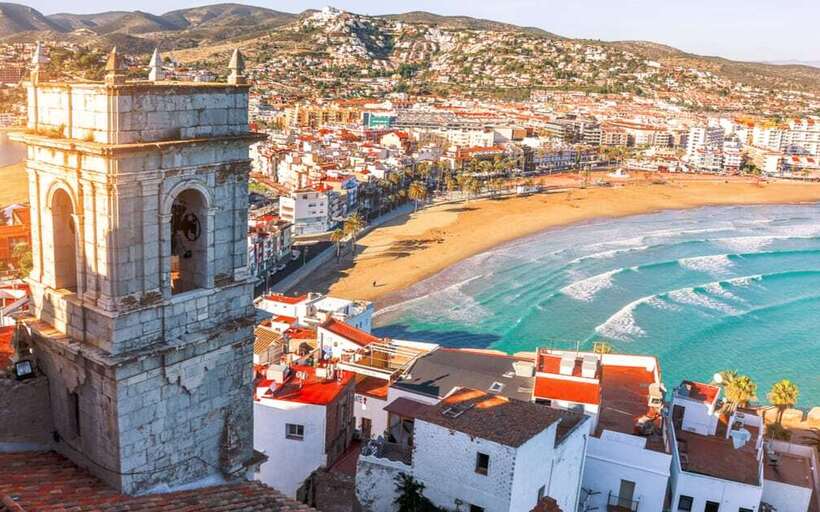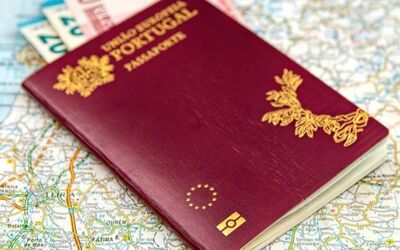Spain has followed the example of its neighbor, Portugal, and launched a new way to attract remote workers, freelancers, and entrepreneurs to live and work in the country. While it is, in fact, a digital nomad visa and we will call it so in this article for the reasons of simplicity, it is not officially labeled as such and the rules are regulated by the Startup Act from 2022. This measure is designed to promote the Spanish economy and tourism industry, while also providing an opportunity for digital nomads to experience Spanish culture and lifestyle.
Who can apply for a Spanish digital nomad visa?
The Spanish digital nomad visa is available to foreign non-EU and non-EEA nationals who work remotely or freelance for companies outside of Spain. It also includes entrepreneurs who want to start their own business in Spain using the income received outside of the country. Note that only those who have not been residents of Spain during the five years prior to the estimated application date can apply.
If you wish to bring your family, they can apply for dependent visas, which will allow them to reside in Spain with you during the validity of your digital nomad visa. The dependent visa requirements vary depending on the family member’s relationship to the applicant and their age.
What are the requirements?
To qualify for the digital nomad visa, applicants must have a monthly income of at least €2,332 ($2,500) and have health insurance coverage in Spain. They must also provide a certificate of good conduct from their country of origin, a valid passport, and proof of accommodation in Spain. Other necessary documents are the proof of having at least 3 years of relevant work experience or a diploma from a school or university in the field you work in as well as the bank statement that proves that you have at least €25,000 (~$26,820) to support yourself though the first year of your life in Spain. If your family is coming with you it is necessary to have an additional amount of €9,441 (~$10,100) per person in your account.
Additionally, applicants must demonstrate that they are engaged in remote work or freelance activities, or provide a business plan if they intend to start a new business in Spain.
Read also: Taxes in Spain, an ultimate guide
What are the benefits?
The digital nomad visa allows successful applicants to live and work in Spain for up to five years without the need to obtain a work permit. This visa also provides access to Spain’s healthcare system and other social benefits, such as access to public schools.
Another benefit is the ability to travel throughout the Schengen Area without the need for additional visas. Spain is located in the heart of Europe, making it an excellent base for exploring nearby countries, such as France, Italy, Portugal, and Germany. With Spain’s efficient transportation system, including high-speed trains and affordable flights, digital nomads can easily travel to other destinations in Europe for work or leisure.
It is also an opportunity to experience Spanish culture, learn the language, and immerse oneself in the local community. Spain is known for its rich history, art, and architecture, as well as its diverse regions, each with its own unique traditions, cuisine, and way of life.
Spanish government has demonstrated a commitment to supporting digital nomads and remote workers, offering a range of resources and programs to help newcomers integrate and thrive
Moreover, Spain’s favorable climate, with warm temperatures and ample sunshine throughout much of the year, makes it an ideal destination for those who enjoy outdoor activities, such as hiking, cycling, and water sports. Spain also boasts some of the world’s most beautiful beaches, as well as picturesque countryside and stunning mountains, providing endless opportunities for adventure and exploration.
Finally, the Spanish digital nomad visa offers peace of mind and security for those seeking a stable and safe environment to live and work. Spain is a stable democracy with a strong economy and a high standard of living, making it an attractive destination for both business and leisure. Additionally, the Spanish government has demonstrated a commitment to supporting digital nomads and remote workers, offering a range of resources and programs to help newcomers integrate and thrive in Spanish society.
How to apply?
The application process for the digital nomad visa is done online through the Spanish consulate in the applicant’s country of origin or through the Spanish embassy in their country of residence. Applicants must provide all required documents, including proof of income, insurance, and accommodation. Any documentation that shows the applicant’s income, such as pay stubs, bank statements, or tax returns can be used as proof of income. It is important to note that the income must be generated from outside of Spain.
The visa application fee is €60 ($68) and applicants must also pay for their own health insurance coverage, which can cost between €60-€100 per month.
The application processing takes 20 office days.
Read also: New Portuguese Digital Nomad Visa, an ultimate guide
What are the differences with the Portuguese Digital Nomad visa?
Compared to Portugal’s digital nomad visa, Spain’s program has a similar focus on attracting remote workers and freelancers. However, Spain’s visa has a longer duration, allowing for up to five years of residency compared to Portugal’s maximum of two years. Additionally, while Portugal requires applicants to spend at least 183 days per year in the country, Spain’s digital nomad visa does not have any residency requirements beyond the initial application. Also, Spain has a lower monthly income requirement: €2,332 for a single applicant against €2,820 in Portugal.
On the other hand, the Portuguese program has a few unique advantages. Firstly, Portugal offers a tax exemption for qualifying non-habitual residents, which means that eligible digital nomads who establish their tax residence in Portugal can enjoy a 10-year tax break on qualifying income sources earned outside of Portugal. You can find more information on Portuguese taxes and the NHR regime here.
Secondly, the Portuguese program may be more attractive to those seeking a quieter, more relaxed lifestyle, as it is generally considered a more laid-back destination compared to the bustling cities of Spain.
That being said, both programs offer similar benefits such as access to social benefits and healthcare, and both countries are known for their vibrant cultures, beautiful landscapes, and delicious cuisine. Ultimately, the choice between the two programs may depend on individual preferences, such as language, location, and lifestyle.
Contact us today if you don’t know which country or visa type to choose
Use our "Call me back" button on the top of this page or contact us via one of the messagers: Telegram, WhatsApp.








